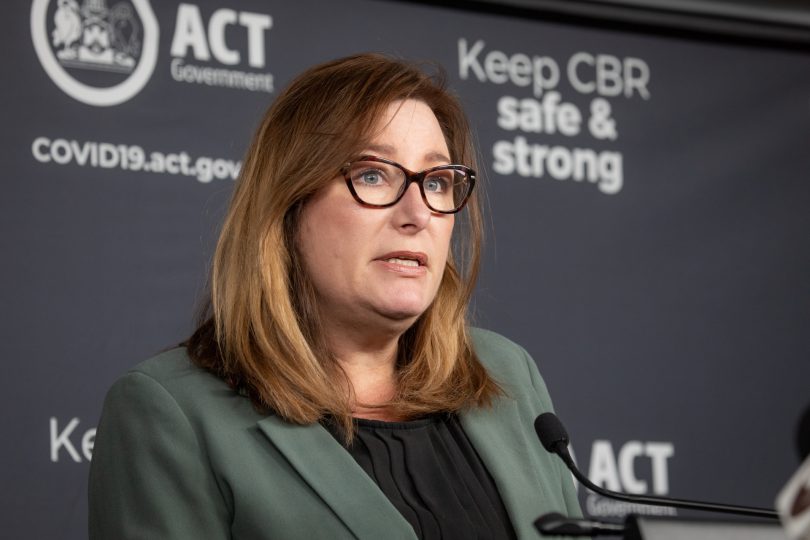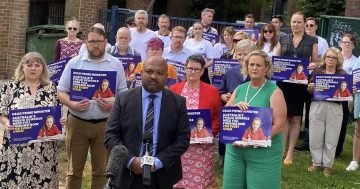
Deputy Chief Minister and Minister for Education, Yvette Berry MLA. Photo: Michelle Kroll.
An ACT Government taskforce will be established to combat what the Australian Education Union says is a nationwide teacher shortage that is also seriously affecting the ACT.
Education Minister Yvette Berry announced the taskforce yesterday (30 August) in response to an AEU survey that found significant issues for many teachers in the ACT, prompting growing shortages as they walk away from the profession.
Ms Berry said the taskforce would include representatives from the Education Directorate and AEU and will meet for the first time next week. The taskforce will work with universities, the Teacher Quality Institute and relevant experts.
Patrick Judge from the AEU said the reasons for teacher shortages were complex but related to concerns around workload and salaries.
“We know that there are identified concerns about whether salaries are competitive and workloads are sustainable”, Mr Judge said, referring to the Gallop Enquiry, an expert panel chaired by Dr Geoff Gallop, former WA Premier and Education Minister, that looked at workload changes for teachers and principals since 2004.
He added that teachers are taking on increasingly complex welfare issues well beyond their educational responsibilities.
“Teachers are trying to find housing, feeding hungry students and providing mental health crisis support,” he said.
“This takes a lot of time and emotional energy. Teachers are overworked and exhausted by the time they get to the end of the week”.
Increasing amounts of unpaid overtime were creating significant pressure in jobs that were otherwise rewarding. Mr Judge said that teachers often consider moving out of the profession when this begins impacting family life.
The pressure was particularly strong in early career teachers. During the first three years, one-third consider leaving their jobs.
Mr Judge agreed that many teachers are well remunerated. However, he said that pay rises of between 7 per cent and 15 per cent could be required to maintain competitiveness with other occupations, especially in jurisdictions like the ACT where degree-qualified professionals can find well paid public service jobs, creating a self-perpetuating cycle of staff shortages.
In 2015, the ACT’s AEU members endorsed a four year enterprise bargaining agreement that gave classroom teachers more than $100,000 each year, at the time the third highest salaries in the country behind only Western Australia and the Northern Territory.
The current agreement, which expires in 2022, granted a pay rise effective on August 8, 2019 and was described by the Government at the time as offering “the highest wages in Australia” for teachers.
But, Mr Judge said the ACT Government needs a taskforce to urgently come up with quality of life improvements for teachers and concrete actions beyond pay rates.
This would demonstrate that workload issues are being addressed before looking at longer-term issues around the teacher education pipeline and salaries.
Multidisciplinary teams in schools to provide support from social workers, occupational therapists, and other qualified staff could remove some of the additional non-teaching workload. Better workforce management and ensuring teachers with the right skills are in the right places would also help.
“Understanding the whole school context and all the professionals who contribute to public schools will be an important consideration in the work of the Taskforce,” Ms Berry said.
“I acknowledge the important contribution of all school staff including allied health professionals, psychologists, learning support assistants, administrative staff, as well as our cleaning and maintenance teams,” she said.
Measures already introduced include a dedicated staffing hotline and more centralised management of the relief teacher pool. Work is also underway on a national and international recruitment campaign to attract teachers to ACT public schools.
“Thank you to all teachers and school staff. The work you do every day makes a significant difference for your students, their families, and their communities.
“The ACT Government is committed to ensuring that ACT public schools are great places to learn and great places to work, and I am looking forward to this opportunity to work with the AEU to learn from the experiences of teachers,” Ms Berry said.





















